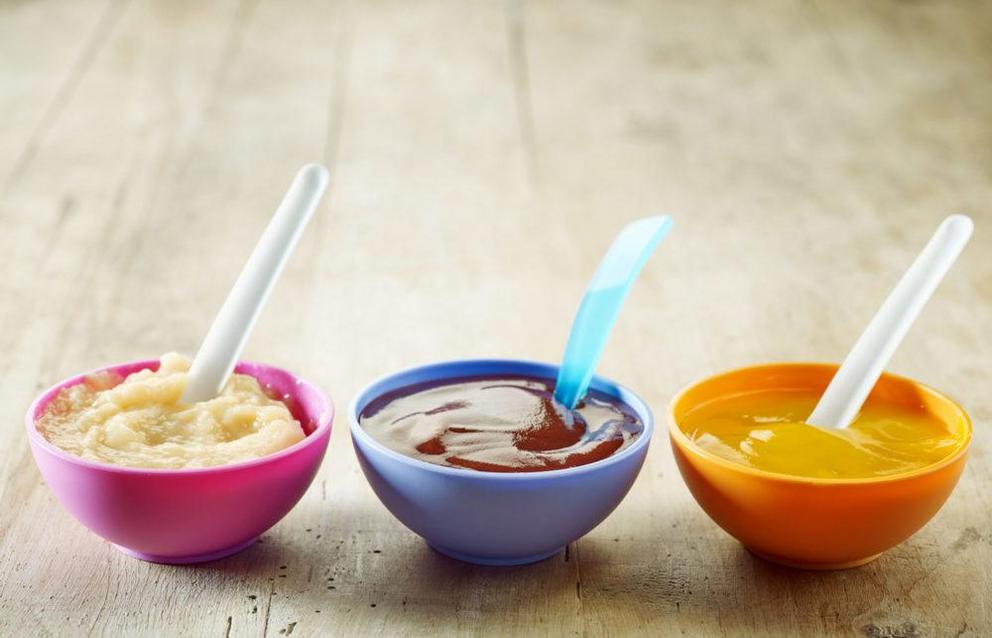Toxic Baby Food in America as companies put profit over health
Toxic Baby Food Contaminated With Heavy Metals Sold By Even More Companies, Per New Congressional Report
The U.S. House of Representatives has published a new report which found more evidence that multiple different baby food products sold in recent years are loaded with dangerous levels of toxic heavy metals, including arsenic, lead, cadmium and mercury.
The report (PDF) was published by the House Subcommittee on Economic and Consumer Policy on September 29, coming after an earlier report on toxic baby foods contaminated with heavy metals that was released by the same subcommittee in February 2021.
In addition to providing updated information about problems with baby food sold by Beech-Nut and Gerber, which has led some lawmakers to push the FDA to accelerate new standards on the amount of heavy metals allowed in baby food and how those products are tested, this new report also implicates several companies not mentioned in the first report, including Campbell, Walmart, and Sprout Foods, Inc.
DID YOU KNOW?MILLIONS OF PHILIPS CPAP MACHINES RECALLED
Philips DreamStation, CPAP and BiPAP machines sold in recent years may pose a risk of cancer, lung damage and other injuries.
The House investigators found some baby foods contained more than 91 times the maximum level of arsenic allowed in bottled water; 177 times the allowable levels of lead, 69 times the limits on cadmium, and five times the levels of allowable mercury. This has raised serious safety concerns about the long-term risk of autism and other health problems that may result from the toxic baby foods.
As part of this new report, the subcommittee looked at data from Campbell, Walmart and Sprout Foods, Inc., whom did not submit data to the committee for the first report, finding the same problems which plagued other major baby food manufacturers. Levels of heavy metals, particularly arsenic and lead, were regularly far above those considered safe, and manufacturers frequently used dubious and inaccurate testing procedures, when they tested at all, according to the findings.
Sprout, for example, relies on its ingredient suppliers to do the testing, which it only requires once per year, and does not test the finished products for levels of arsenic, cadmium, lead or mercury. The report called its testing procedures “the most reckless among baby food manufacturers.”
The report also details how Walmart “took a giant step back” from protecting babies from toxic heavy metals in 2018, by raising its arsenic limit from 23 parts per billion (ppb) in its baby food products, to 100 ppb. While there is no maximum level for inorganic arsenic in baby food currently set by the FDA, there is a 100 ppb limit set specifically for infant rice cereal, and agency only allows 10 ppb in bottled water.
The report also looks at a recall of Beech Nut grain rice cereal that occurred in June, and led to the company exiting the baby grain rice cereal market. The subcommittee determined that recall was incomplete, and pointed out that Gerber should have also issued a baby food recall for some products, but did not.
The recall came after Alaskan regulators found several samples of Beech-Nut and Gerber’s infant rice cereal products contained levels above 100 parts per billion in infant rice cereal. However, Beech-Nut only recalled two of the six products which tested positive for excessive levels of inorganic arsenic. Gerber, which had two infant rice cereal products which exceeded the 100 ppb level, recalled none of its products as a result of the testing.
“The testing practices for toxic heavy metals used by most of the baby food industry are flawed and underestimate the toxic heavy metal content of their products,” the report determines. “The Subcommittee recommended that all manufacturers adopt finished product testing.”
The subcommittee also recommends the FDA issue a maximum toxic heavy metals limit sooner rather than later, and called on the agency to mandate that baby food manufacturers conduct finished-product testing, as opposed to the current practice of just testing the ingredients before the final product is complete.
It also called on the industry to voluntarily find substitutes for ingredients known to contain high levels of heavy metals, such as rice.
Toxic Metal Baby Food Lawsuits
While heavy metals do occur naturally in some foods, like rice and vegetables, the amounts may be increased by adding enzymes, vitamins and mineral mixes. Companies often do that, leading to dangerous levels of heavy metals in the final products. However, long term exposure of heavy metals poses serious health concerns for children. Lead exposure at any level is extremely unsafe, and prior studies have linked heavy metal exposure to behavioral impairments, brain damage, damage to the nervous system, seizures, growth impairments, and even death.
Since the Congressional subcommittee report was released in February, manufacturers have faced a growing number of toxic baby food lawsuits filed in federal courts nationwide.
Given common questions of fact and law raised in lawsuits pending throughout the federal court system, a group of plaintiffs filed a motion to centralize the baby food cases earlier this year. However, the U.S. Judicial Panel on Multidistrict Litigation (JPML) rejected that request in June.
Such consolidation is common in complex product liability litigation, where a large number of product liability lawsuits have been filed over similar injuries caused by the same products. Centralizing the cases before one judge is intended to reduce duplicative discovery into common issues in the cases, avoid conflicting pretrial rulings from different courts and serve the convenience of common witnesses, parties and the judicial system.
However, given the JPML’s recent decision, the cases are moving forward as individual lawsuits.

